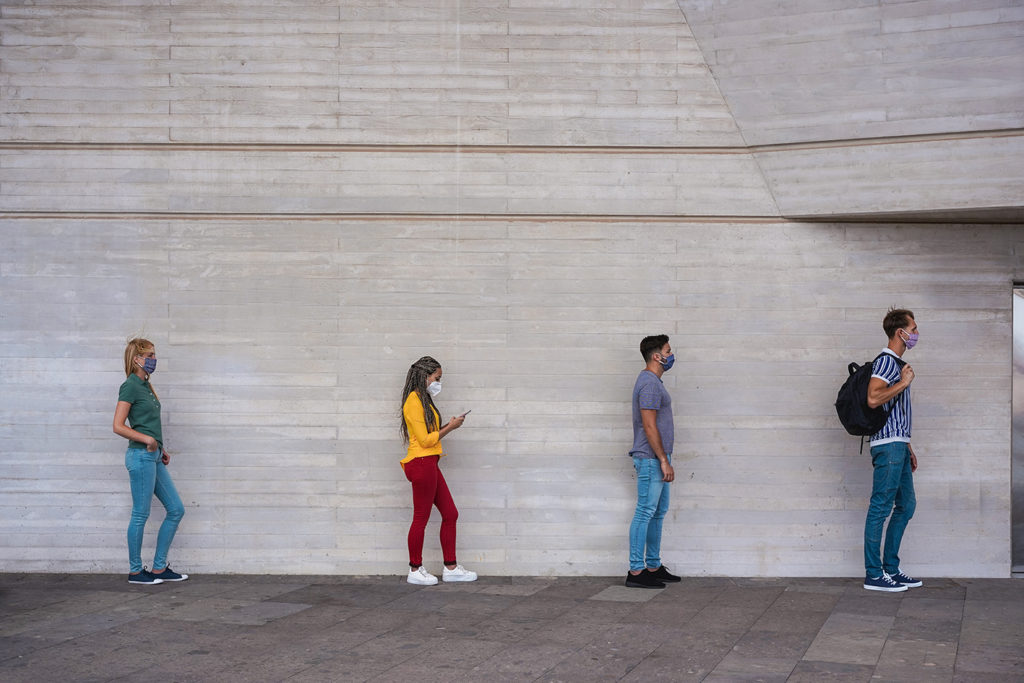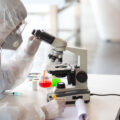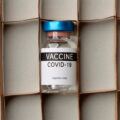Will the COVID-19 vaccine be ethically tainted?
Will the COVID-19 vaccine be ethically tainted?
The world needs a COVID-19 vaccine, but ethicists and religious communities are raising ethical concerns over their development and eventual distribution. This forces us to ask: Will the COVID-19 vaccine be ethically tainted?
Need for a vaccine for COVID-19?
The worldwide death toll from COVID-19 sits at 916,005 out of 28,516,744 reported cases according to the European Centre for Disease Prevention and Control.[1] This places the death rate at about 3.21% or approximately 1 death per 31 reported cases. This obvious danger has meant governments across the world have closed their borders and enforced widespread quarantine measures. These measures have saved lives, but also have taken their toll on the emotional and economic health of individuals and nations. They cannot be sustained forever, but a vaccine could replace them and protect the global population from COVID-19.
The need for the vaccine is obvious and few would argue otherwise.[2] [3] [4] [5] [6] Yet, various ethics panels and religious groups have begun to raise ethical concerns. So, what are the ethical questions facing the various COVID-19 vaccines already under development?
There are three main areas of ethical objection to possible COVID-19 vaccines: 1) Human testing, 2) Cell-lines derived from abortions, and 3) Fair distribution. These three objections have been made by both secular and religious groups.
Rushed human tests
Among the medical, scientific, and more broadly secular communities, concern exists over rushed human trials on three different grounds, though religious voices are not totally absent.[7] First, some question testing the effectiveness of a vaccine on human subjects in what are known as ‘human challenge trials’.[8] [9] [10] In human challenge trials, humans will be intentionally infected with COVID-19 or a dilution of it and be given the vaccine,[11] potentially also with a less promising vaccine[12] and/or placebo. But since COVID-19 has a very high mortality and serious health complication rate compared to seasonal influenza, there is serious risk of harm to those participating in the vaccine trial and to the general public. There is also risk that a rushed and less-tested vaccine might not have real-world effectiveness or a rate of negative side effects that at the scale of the world’s billions presents a serious ethical challenge.[13] Moreover, some note that rushing through human trials risks undermining public confidence in the safety and effectiveness of the vaccine.[14] Undermining public trust would risk lives if the public avoids taking the vaccine and could reinforce negative views on vaccines in general. While many who raise these concerns still think the need outweighs the risks, they force us to consider whether the vaccine may be ethically tainted because it risks people’s lives through the testing itself, unproven effectiveness, or through lower vaccine acceptance.
Use of cell lines derived from abortion
However, among Roman Catholics and evangelicals across the world, the concern focuses on how cell lines derived from various aborted foeti are used to produce many of the possible COVID-19 vaccines.[15] [16] [17] [18] [19] [20] [21] Yet, some scientists and secular ethicists have also weighed in.[22] Many vaccines are produced by purposefully infecting a unique type of human cells to culture a less virulent strain of the virus. These cells are unique because they will reproduce in culture perpetually, while most cells will eventually stop reproducing. Hence they are called cell lines. However, some of these cell lines were sourced from aborted foeti. Since Catholics and evangelicals understand abortion as the murder of a human person, they argue the use of such cell lines would make researchers and recipients complicit in the original abortion,[23] [24] [25] [26] [27] [28] [29] desecrate the body of the aborted child,[30] [31] set a bad precedent of benefiting from unethical activity,[32] or even incentivise future exploitation of women and their unborn children through abortion.[33] [34] While some suggest sufficient historical distance from the abortion and urgent need of COVID-19 outweigh their ethical taint,[35] [36] [37] they also contend that since not all cell lines are derived from abortions, alternatives without this ethical taint already exist. Consequently, they do not question the importance of a vaccine, just how one is produced. They raise this concern in hope that an alternative vaccine will be produced without foetal cell lines.[38] [39] [40]
A vaccine for all? Or really just the rich?
Finally, assuming there is an effective vaccine, and even assuming that the vaccine was not tainted by the earlier two concerns surrounding its development, others raise an ethical concern over any vaccine’s distribution. Here both secular and religious voices seem united in their concern that the wealthy individuals and nations will benefit first and that the poor will be forced to wait for later batches of the vaccine.[41] [42] [43] [44] [45] This is a concern about equity: will everyone have fair access to the vaccine? If the vaccine goes to who is willing to pay more or who orders first, then what hope do poorer communities and countries have? Yet, ironically, it is there the vaccines are likely to be produced.[46] Recognising vaccines are so important to save lives, both religious and secular communities are concerned that each life in the world is equally valued and that allocation of the vaccine proceeds on a basis other than wealth or power.
Lingering questions
Few debate the need for a COVID-19 vaccine to save lives and bring the world back towards normal. But vaccines come with ethical implications that are often not considered in the urgency of the demand. While we may not be able to answer these or the many other ethics questions here, we have at least begun to consider them. But ultimately questions remain: Does the perceived urgent need for an effective coronavirus vaccine to save lives outweigh the perceived ethical deficiencies concerning human testing, aborted foetal tissue, and fair distribution? Is ethical taint unavoidable? Or can we somehow develop and distribute an ethically untainted COVID-19 vaccine?
Want to know more about similar topics? Create an account on our Dashboard and receive free updates.
[1] As of 12 September 2020, cf. European Centre for Disease Control: COVID-19 situation update worldwide. Cf. also WHO Coronavirus Disease (COVID-19) Dashboard.
[2] Coronavirus vaccine: When will we have one?
[3] Coronavirus: Pope’s vaccine plea and universities facing ‘crazy demand’
[4] Pope Francis: Make coronavirus vaccine available to all
[5] Archbishop of Canterbury on Twitter: “Praying today for an end to the #coronavirus pandemic, for a vaccine, and for healing for all those who are sick. Lord have mercy. #PrayForHumanity #14May”
[6] 172 countries and multiple candidate vaccines engaged in COVID-19 vaccine Global Access Facility
[7] “Cuando llegue, no debemos pensar en la vacuna como una forma de protección individual”
[8] The rush for a vaccine is a giant throw of the dice
[9] Why Challenge Trials of SARS‐CoV‐2 Vaccines Could Be Ethical Despite Risk of Severe Adverse Events
[10] COVID-19 human challenge studies: ethical issues
[11] SARS-CoV-2 (COVID-19) Vaccine Development and Production: An Ethical Way Forward
[12] Opinion: It’s ethical to test promising coronavirus vaccines against less-promising ones
[13] Pandemic vaccine trials: expedite, but don’t rush
[14] Vaccine skeptics threaten Europe’s bid to beat coronavirus
[15] Australian official dismisses Catholic bishop’s objections to Covid-19 vaccine
[16] Why are Australian church leaders opposing the Oxford coronavirus vaccine?
[17] Debate en Norteamérica por el uso de tejido fetal en el desarrollo de la vacuna de la Covid-19
[18] The Anscombe Bioethics Centre COVID-19 Briefing Paper 2: COVID-19 Vaccines and Use of Foetal Cell-lines
[19] Covid-19 vaccine could present ethical dilemma for Catholics
[20] Abortion opponents protest COVID-19 vaccines’ use of fetal cells
[21] Australia, UK bishops on moral concerns of potential Covid-19 vaccine
[22] How making a COVID-19 vaccine confronts thorny ethical issues
[23] Australian official dismisses Catholic bishop’s objections to Covid-19 vaccine
[24] Why are Australian church leaders opposing the Oxford coronavirus vaccine?
[25] Debate en Norteamérica por el uso de tejido fetal en el desarrollo de la vacuna de la Covid-19
[26] The Anscombe Bioethics Centre COVID-19 Briefing Paper 2: COVID-19 Vaccines and Use of Foetal Cell-lines
[27] Covid-19 vaccine could present ethical dilemma for Catholics
[28] Abortion opponents protest COVID-19 vaccines’ use of fetal cells
[29] Australia, UK bishops on moral concerns of potential Covid-19 vaccine
[30] The Anscombe Bioethics Centre COVID-19 Briefing Paper 2: COVID-19 Vaccines and Use of Foetal Cell-lines, p. 4
[31] Instruction Dignitas Personae on Certain Bioethical Questions, Congregation for the Doctrine of the Faith, sections 34-35.
[32] The Anscombe Bioethics Centre COVID-19 Briefing Paper 2: COVID-19 Vaccines and Use of Foetal Cell-lines, p. 5
[33] The Anscombe Bioethics Centre COVID-19 Briefing Paper 2: COVID-19 Vaccines and Use of FoetalCell-lines, p. 3
[34] Instruction Dignitas Personae on Certain Bioethical Questions, Congregation for the Doctrine of the Faith, sections 34-37.
[35] The Anscombe Bioethics Centre COVID-19 Briefing Paper 2: COVID-19 Vaccines and Use of Foetal Cell-lines, p. 6.
[36] Australian official dismisses Catholic bishop’s objections to Covid-19 vaccine
[37] Why are Australian church leaders opposing the Oxford coronavirus vaccine?
[38] The Anscombe Bioethics Centre COVID-19 Briefing Paper 2: COVID-19 Vaccines and Use of Foetal Cell-lines, p. 6.
[39] Australian official dismisses Catholic bishop’s objections to Covid-19 vaccine
[40] Debate en Norteamérica por el uso de tejido fetal en el desarrollo de la vacuna de la Covid-19
[41] Ethical considerations for vaccination programmes in acute humanitarian emergencies
[42] Ethical road map through the Covid-19 pandemic
[43] Ending the pandemic will take global access to COVID-19 treatment and vaccines – which means putting ethics before profits
[44] “Cuando llegue, no debemos pensar en la vacuna como una forma de protección individual”
[45] Pope Francis: Make coronavirus vaccine available to all
[46] Ending the pandemic will take global access to COVID-19 treatment and vaccines – which means putting ethics before profits






